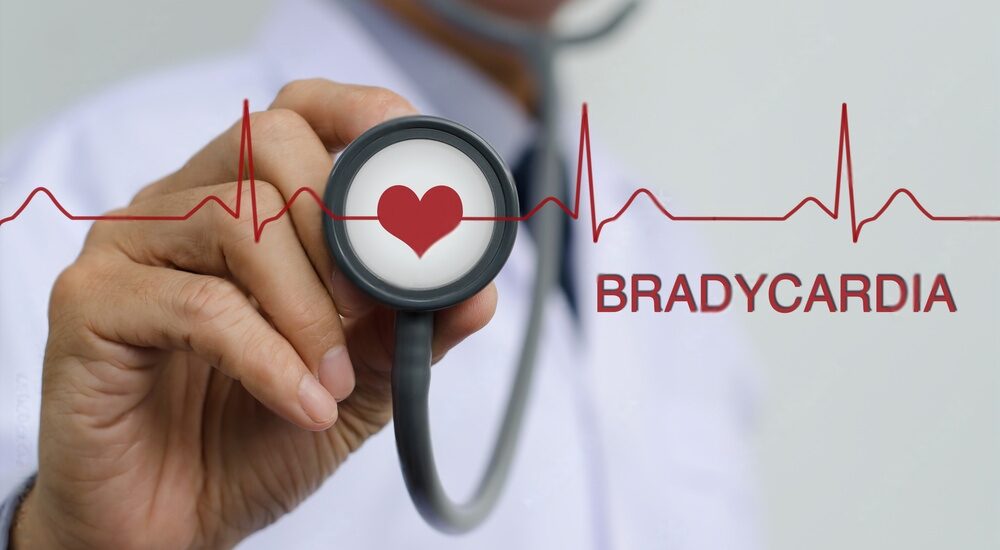When it comes to heart health, understanding various heart conditions is crucial. One such condition is bradycardia, which refers to a slow heart rate. In this article, we will explore the term bradycardia — meaning and its significance in cardiovascular health.
It is important to recognize the symptoms, understand the underlying causes, and explore available treatment options for this condition. While this article provides valuable information, consulting a healthcare professional is essential for an accurate diagnosis and personalized treatment plan.
What is Bradycardia (Slow Heart Rate)?
Bradycardia, derived from the Greek words “bradys” meaning slow and “kardia” meaning heart, is a medical term used to describe a condition characterized by a heart rate that is slower than the normal range.
In individuals with bradycardia, the heart beats at a rate that is below the standard resting heart rate, which is typically between 60 to 100 beats per minute in adults. However, in some cases, a slow heart rate may not necessarily be a cause for concern, especially in athletes or individuals who lead an active lifestyle. Nonetheless, persistent bradycardia may indicate an underlying health issue with the electrical system that controls the heart’s rhythm, potentially affecting the heart’s ability to pump blood efficiently throughout the body. It is important to consult a healthcare professional for a comprehensive evaluation and appropriate management of this condition.
Symptoms of Bradycardia
The symptoms experienced by individuals with bradycardia can vary. Some people may not exhibit any noticeable symptoms, while others may experience:
- Fatigue and weakness
- Dizziness and lightheadedness
- Fainting or near-fainting (syncope)
- Shortness of breath
- Chest pain or discomfort
- Tiredness
Causes of Bradycardia
Bradycardia can have various causes, including:
- Problems with the heart’s electrical system
- Age-related changes
- Medications
- Medical conditions such as hypothyroidism and heart disease
- Sick sinus syndrome
- Inflammation (conditions like endocarditis, myocarditis, or pericarditis)
- Heart block
- Heart surgery
- Radiation Therapy
- Electrolyte deficiencies
Diagnosis for Bradycardia
Diagnosing bradycardia involves a comprehensive evaluation by a healthcare professional. The following diagnostic approaches and tests may be employed:
- Medical history and physical examination: To diagnose bradycardia, a healthcare professional will conduct a thorough evaluation. This includes taking a detailed medical history and performing a physical examination to assess symptoms and overall health.
- Electrocardiogram (ECG): This non-invasive test records the electrical activity of the heart. It helps in measuring the heart rate, evaluating the rhythm, and identifying any abnormalities in the heart’s electrical system. An ECG is a primary tool used to diagnose bradycardia.
- Holter monitor: In some cases, a Holter monitor or event monitor may be recommended. These portable devices continuously record the heart’s electrical activityover a period of time, allowing for the detection of intermittent episodes of bradycardia that may not be captured during a short-term ECG.
- Blood tests: Blood tests may also be conducted to check for underlying causes such as electrolyte imbalances, thyroid disorders, or other medical conditions that can contribute to bradycardia. These tests help provide a comprehensive understanding of the individual’s overall health and contribute to an accurate diagnosis.
Treatment for Bradycardia
The treatment approach for bradycardia depends on the underlying cause, severity of symptoms, and individual patient factors. The goal of treatment is to restore a normal heart rate and alleviate symptoms. Here are some common treatment options:
Medications: Certain medications can help increase the heart rate and manage bradycardia. These may include:
- Atropine: It blocks the action of certain nerve impulses, thereby increasing heart rate
- Epinephrine or dopamine: These medications stimulate the heart and help restore normal heart rhythm
- Beta-blockers or calcium channel blockers: These medications may be prescribed in cases where bradycardia is caused by certain heart conditions or medications
Pacemaker: A pacemaker is a small device inserted beneath the skin, typically close to the collarbone. By producing electrical impulses and encouraging the heart to beat normally, it aids in heart rate regulation. When drugs are ineffective or there is significant bradycardia, pacemakers are frequently employed.
Lifestyle modifications: Certain lifestyle changes may be recommended to manage bradycardia effectively. These may include:
- Avoiding triggers or medications that can further slow down the heart rate
- Making dietary changes, such as ensuring adequate intake of nutrients like potassium and magnesium
- Engaging in regular exercise
- Managing underlying conditions that contribute to bradycardia, such as hypothyroidism or electrolyte imbalances
In a Nutshell
To sum up, bradycardia, or a slow heart rate, can have various causes and symptoms. It is important to recognize the signs, such as fatigue, dizziness, and shortness of breath, and seek medical attention for proper diagnosis and treatment.
If you are experiencing symptoms of bradycardia, tachycardia, or have concerns about your heart health, it is essential to consult with a qualified physician. BPinControl, an online healthcare platform, offers a convenient way to find a trusted physician. By visiting BPinControl’s Find a Physician webpage, you can access a comprehensive directory of healthcare providers who specialize in heart health and arrhythmias.
Take charge of your heart health and connect with the right healthcare professional to receive personalized care and support.
Disclaimer
The information contained in this article is to educate, spread awareness in relation to hypertension and other diseases to the public at large. The contents of this article are created and developed by BPinControl.in through its authors, which has necessary, authorisations, license, approvals, permits etc to allow usage of this articles on The Website. The views and opinions expressed in this article are views, opinions of the respective authors and are independently endorsed by doctors. Although great care has been taken in compiling and checking the information in this article, The Website shall not be responsible, or in any way liable for any errors, omissions or inaccuracies in this article whether arising from negligence or otherwise, or for any consequences arising therefrom. The content of this article is not a substitute for any medical advice. The Website shall not be held responsible or liable for any consequence arising out of reliance on the information provided in the article.




